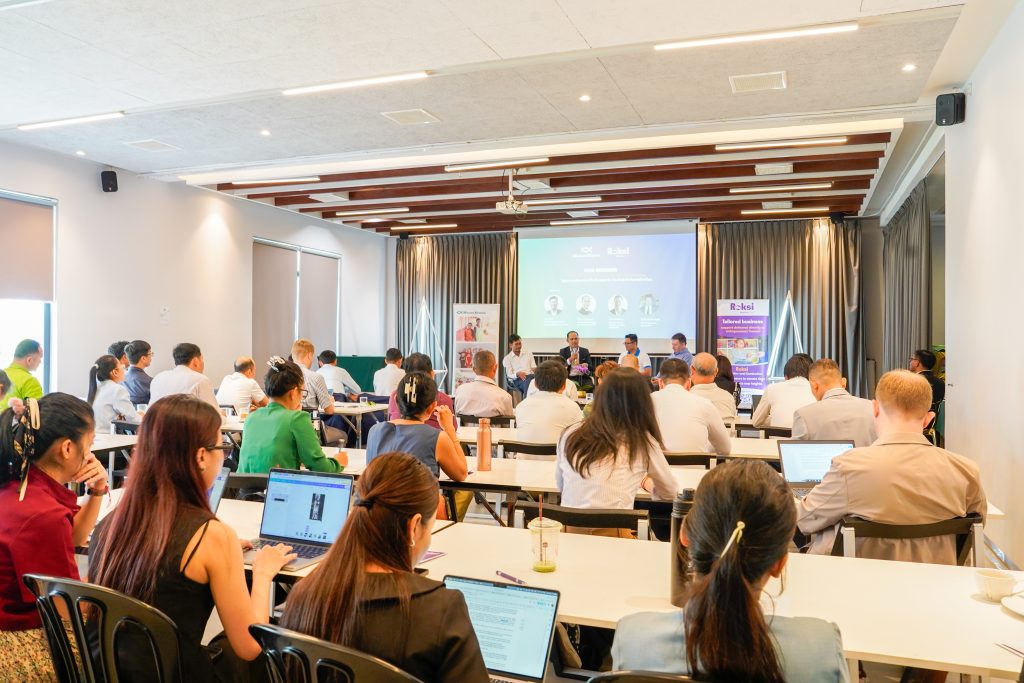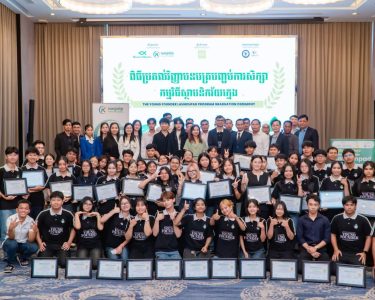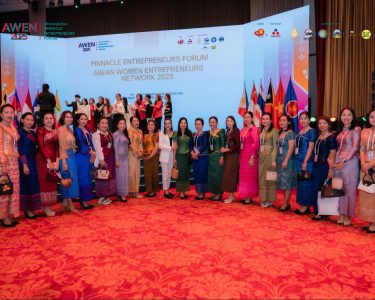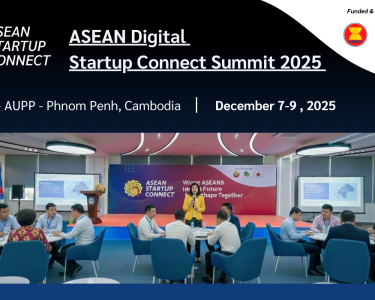Cambodia Investment Review
Cambodia’s innovative Roksi Project—designed to support rural entrepreneurs through digital coaching—has received strong praise in a recent independent evaluation, revealing its potential to drive inclusive economic transformation. The findings were shared during a high-level panel discussion on August 5, 2025, at Raintree Phnom Penh, where government officials, development partners, and private sector leaders gathered to assess progress and chart the path forward.
Tech-Enabled Support for Informal Entrepreneurs
Roksi, an initiative by Mission Alliance in Cambodia and funded by Norad via Digni, was developed to empower micro-business owners and self-employed individuals—particularly those in remote or low-literacy communities—who typically fall outside traditional capacity-building programs. Through an automated chatbot and flexible one-on-one coaching, Roksi offers a mobile-first, self-paced learning experience aimed at strengthening business planning, financial literacy, and market access.
The independent evaluation, led by Vallby Konsult of Sweden, confirmed that the project is achieving significant impact. Users reported improved confidence, better farming and business practices, and stronger livelihood outcomes after engaging with Roksi’s digital coaching modules.
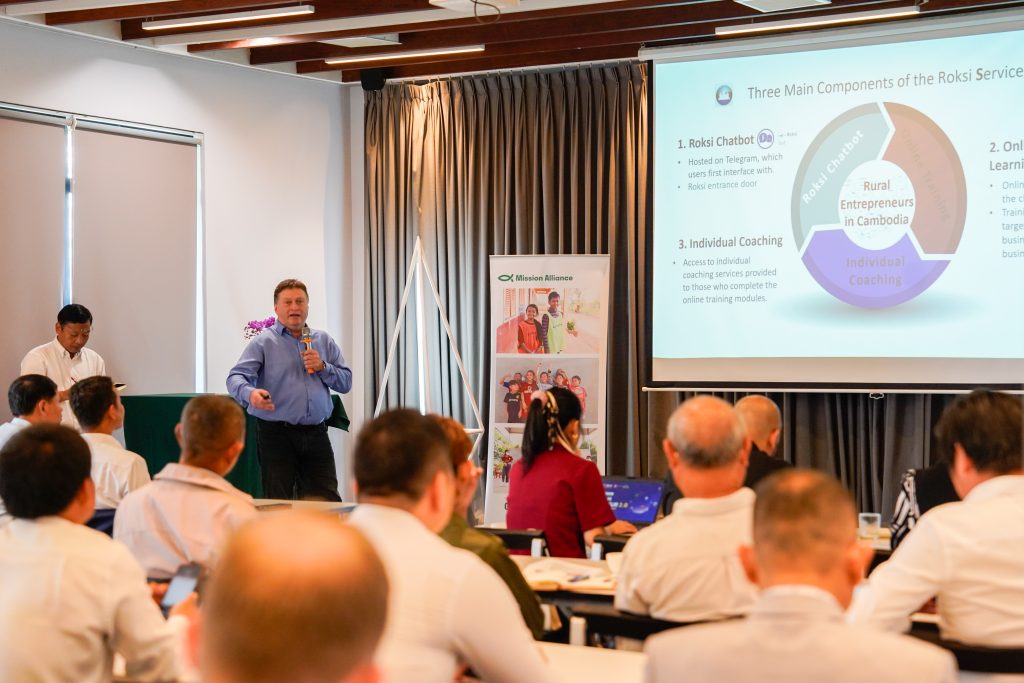
Evaluation Findings: Successes and Areas for Improvement
While applauding Roksi’s initial success, the evaluation also outlined critical areas for improvement to ensure scalability and inclusivity:
- Accessibility barriers remain, particularly for users with limited literacy or indigenous language backgrounds. More pictorial and audio-based content is needed to reach these groups effectively.
- Digital gaps persist in rural areas. Limited internet connectivity and high data costs were cited as key challenges, with a recommendation to introduce downloadable offline content and templates.
- Human interaction remains important. Despite the benefits of automation, many users expressed a preference for at least occasional face-to-face support or voice coaching.
- Limited awareness of Roksi’s existence was identified as a bottleneck. Greater outreach through commune councils, the National Employment Agency, and social media was recommended to expand the user base.
Despite these limitations, the evaluation concluded that Roksi is “financially efficient, effective, and coherent with national policy goals,” with a clear potential to complement and extend other business support initiatives in the country.
Biju Abraham, Country Director of Mission Alliance Cambodia said, “informal economy is the backbone of rural resilience remains overlooked. ROKSI reaches those left behind: self-employed individuals and micro-entrepreneurs struggling with literacy, distance, and time constraints. They are farmers, street vendors, and artisans whose dreams fuel communities yet who face isolation from support systems concentrated in cities. As we look ahead, our focus sharpens: scaling inclusive tools for the poor, advocating for policy shifts, and forging partnerships that turn vulnerability into sustainability.”
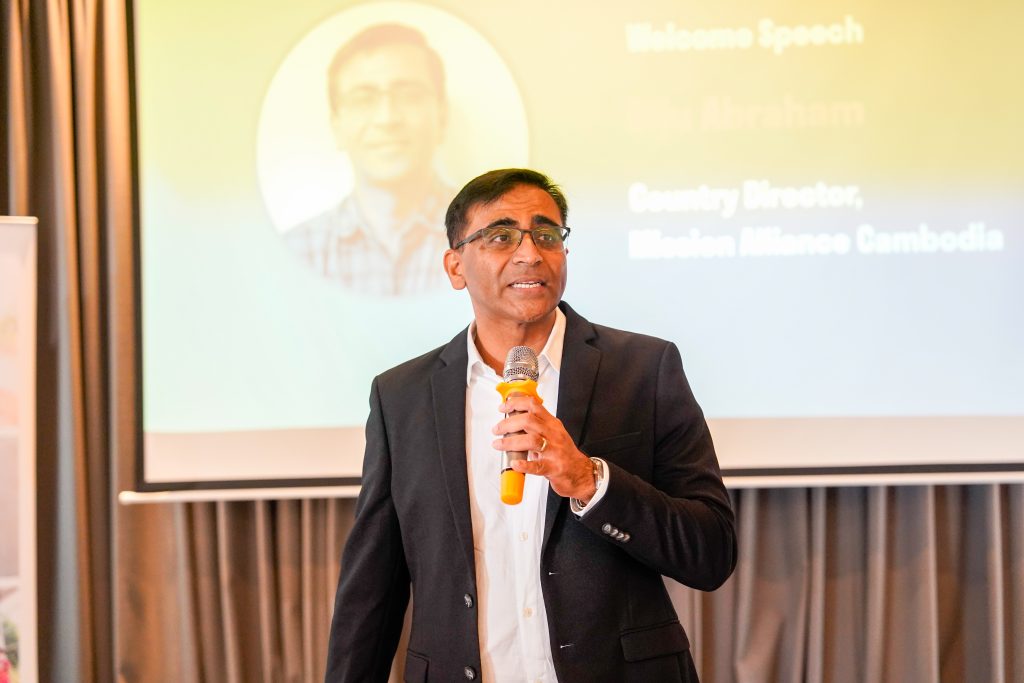
Strategic Recommendations for National Integration
The evaluation’s recommendations form a comprehensive roadmap for Roksi’s future development, including:
- Enhancing usability through localized language support, improved chatbot voice quality, and simplified interfaces.
- Expanding coaching capacity by training coaches in more technical subjects and creating a volunteer mentor network.
- Strengthening partnerships with government and civil society organizations to align services and ensure greater outreach.
- Encouraging long-term sustainability, including exploring modest user contributions and embedding Roksi into Cambodia’s broader economic inclusion strategies.
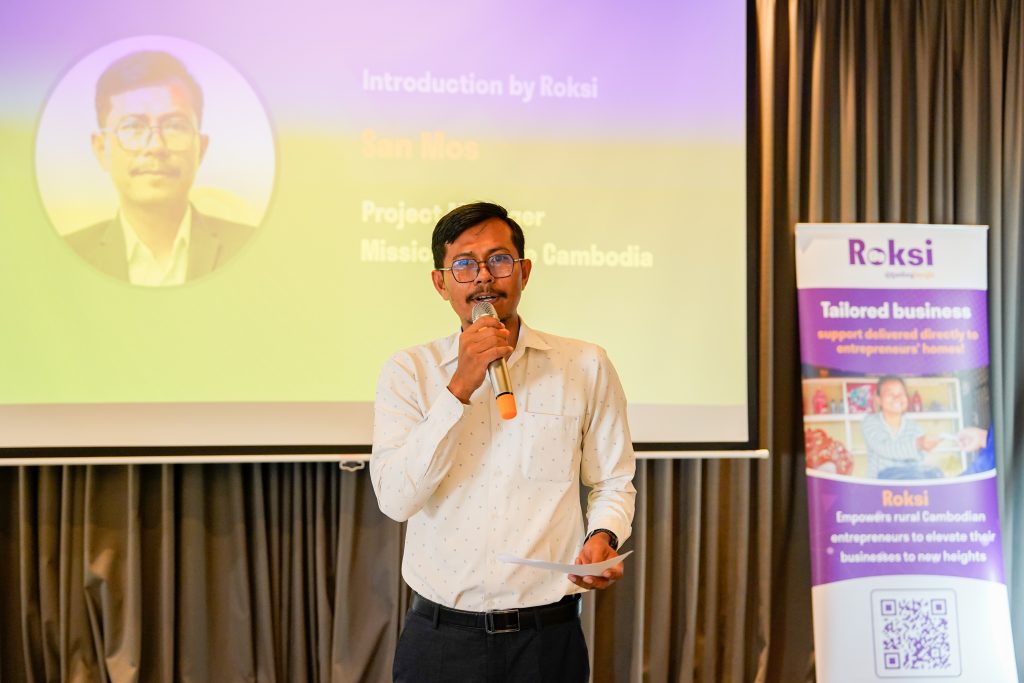
Supporting Cambodia’s Informal Economy Reform Agenda
A panel discussion post the presentation also addressed the broader context: more than 80 percent of Cambodia’s workforce remains in the informal economy, including drivers, domestic workers, market vendors, and farm laborers. These workers often lack access to social protection, financing, and healthcare.
Government partners emphasized the importance of gradual formalization though the National Strategy on The Development of the Informal Economy 2023 – 2028. Informal Economy Actors including self-employed individuals and micro business owners can now register online via Digital Platform for Informal Economy Development. Once registered on the platform, they can access benefits offered by the government including health care benefit (National Social Security Fund), capacity building support and other benefits.,
San Mos, Roksi Project Manager of Mission Alliance said “We will work with different partners and stakeholders to scale up Roksi and strengthen our supports to the entrepreneurs in the informal economy in alignment with the national strategy on the development of the informal economy 2023 – 2028”.
However, panelists acknowledged key barriers to formalization—such as complex registration processes, tax concerns, and limited trust in public institutions. Despite these challenges, all agreed that formalization is essential for Cambodia to meet its long-term economic goals, including improved tax revenue, inclusive growth, and social protection for all.
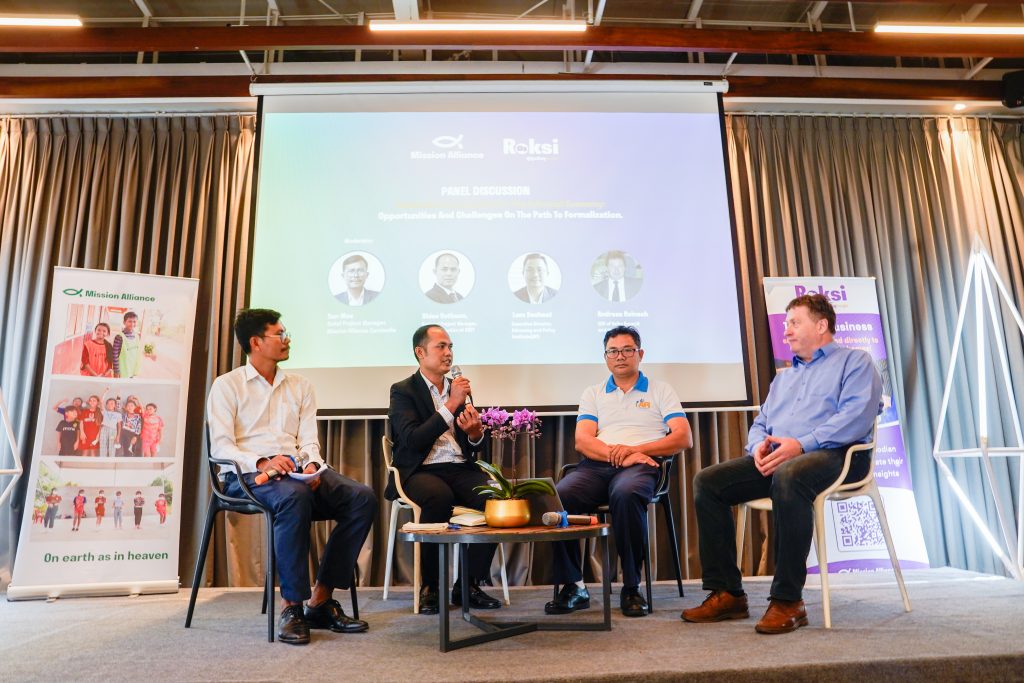
A Model For Combining Technology and Community-Based Support
As Cambodia works to modernize and formalize its economy, the Roksi Project is emerging as a model for how technology and community-based support can bridge the gap between informal entrepreneurs and formal economic participation.
The findings from the evaluation provide a clear blueprint for refining and scaling the project—strengthening its usability, reach, and policy alignment. With continued support and smarter integration, Roksi could become a cornerstone in Cambodia’s inclusive economic development strategy, helping to build a more resilient and equitable future for all.
